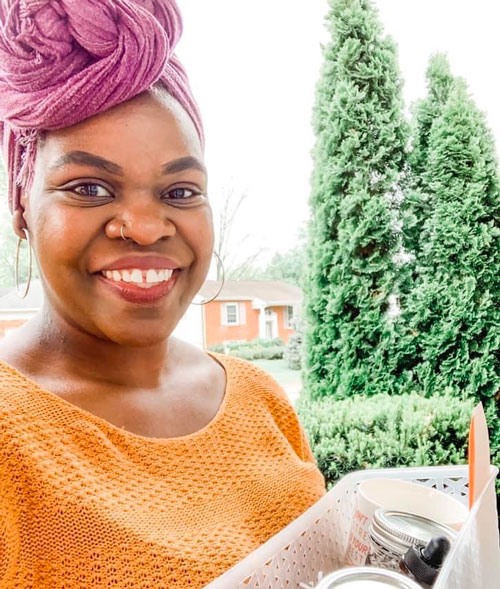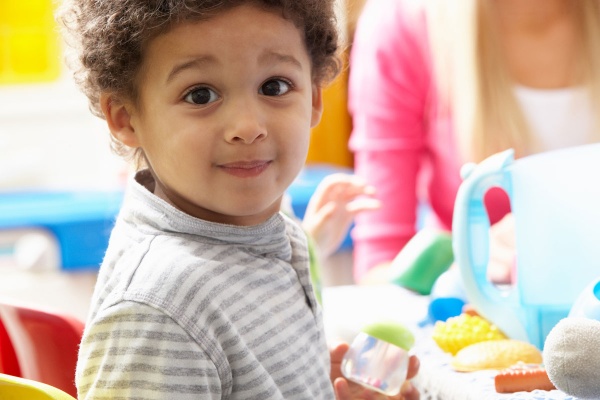

Postpartum Support: How Elephant Baby is Helping New Moms Relax and Recover
As mothers, we’ve all been there.
The first week you bring your baby home from the hospital, you’re surrounded by support. Friends and family come bearing gifts, casseroles and open arms to hold your little one so you can get a few minutes’ rest. If you’re lucky, they may even wash a dish or two for you.
By week two, you’re on your own. Just as the baby blues start kicking in, you’re surviving on handfuls of goldfish crackers, staring at growing piles of laundry through sleep-deprived eyes, and bottling up your frustrations to put on a brave face. It’s no wonder up to 20 percent of moms suffer from postpartum depression.
To ensure the best health outcomes for both mother and baby in the critical “fourth trimester,” we have to stop ending the conversation at “You got this, mom” as we walk away, and instead remind her that “We got you” and actually mean it. In fact, studies show that when moms have a strong social support system, not only does their risk of postpartum depression decline, but they also recover faster from the physical impact of birth.
As a postpartum doula, Kilah Lawson of Elephant Baby steps in to provide support based on the individual needs of each new mom. In addition to offering nutritional guidance, holistic care and mental health risk assessments, Lawson can handle everything from meal prep to running errands so mom can focus on snuggling her little one or sneak in a much-needed nap.
For moms who are struggling, the support can be life-changing, and for some, even life-saving.
Rebuilding the support system for today’s moms
The lack of postpartum support for women in the U.S. is glaring when compared to other societies. According to Lawson, Indigenous and Eastern cultures hold this period in high regard, when moms often live with family members to be cared for.
However, she said, “There’s a gap in American society where the family unit is just not the same. We live in a very individualistic society, which has its benefits, but it also has its downfalls. The cultures that understand the importance of the postpartum period appreciate collectivism so communal and familiar support is huge. We’re far removed from that, so we’re no longer in tune with cultural practices.”
Add to that, explained Lawson, is the colonization of education regarding what’s “normal” in terms of postpartum. Gone are the traditions and knowledge passed on from generation to generation. Instead, today’s new mothers are expected to fit the supermom mold modern society has constructed and are conditioned to view asking for help as a sign of weakness.
For Lawson, the mother of five children ages two through eight, it’s a struggle she understands well. When she had her first child, friends and family rallied behind her. However, by her third, she was essentially left to handle everything on her own, trying to balance bonding with her baby with the needs of her older children and an ever-growing list of household to-dos.
This frustration paved the way for a new career path and an opportunity for Lawson to change lives across St. Louis. She underwent doula training at Jamaa Birth Village, and instead of following the traditional doula route, chose to focus solely on postpartum moms.
Today, Lawson provides a wide range of services to new moms, customized to their specific needs. “I center my care around the philosophy that moms are to be nurtured – they should feel loved, they should feel cared for, and they should feel empowered. I want to ensure moms are not only supported, but they have the information needed to make the best choices for themselves and their families.”
Care for the physical, the mental and the emotional
Unless a mother has a serious medical condition, the care she receives after delivery is often limited to one six-week follow-up visit with her OB/GYN. Medical providers are quick to address mental health risks, but in many cases, the treatment comes in a pill bottle and a referral to a support group.
As a postpartum doula, Lawson supplements medical care with a wide range of holistic services to bring a mom’s physical, mental, emotional, and spiritual health into balance.

Kilah Lawson of Elephant Baby
“When a mom is struggling emotionally, we want to get to the root of the issue, not just treat it. For instance, postpartum depression and anxiety can be linked to nutritional deficiencies. A mom’s body will do whatever it can to give the baby whatever they need. During pregnancy, our placenta gives all of our nutrients to our baby, and that depletion continues once we start breastfeeding.”
To help moms replenish essential vitamins and nutrients and regulate their changing hormones, Lawson offers nutritional coaching, equips moms with herbal infusions, teas and supplements, and if needed, prepares nutrient-dense soups and stews at each visit.
Lawson also provides massage services to encourage blood flow, which prevents infection and builds immunity, and general health assessments to help determine if a mom should seek additional medical care (which is vital as 50 percent of maternal deaths happen postpartum). What makes Lawson particularly stand out is that she offers extensive help like whole-house cleaning and laundry services to take the stress of a mom’s shoulders.
When mom Shannon Hughey recently welcomed her newborn son, this extra set of hands proved critical as she adjusted from two children to three. “It’s not easy to fully reconfigure a family, but that's exactly what we do with every new child, and it takes a lot of time and emotional energy to do. Meals, dishes, laundry, and the million other things that keep a household running don't pause during the postpartum time. In fact, they multiply. Postpartum support like Kilah provides is really a gift of time – time to heal and time to enjoy your new family.”
In addition, because Lawson kept the focus on mom and not just her baby, Hughey was better able to adjust emotionally after being diagnosed with postpartum depression following her second pregnancy.
“Her help with the house allowed me the time and space to rest and promote my physical healing,” Hughey explained. “She continually reminded me that my job is to focus on healing and bonding. By having her help in so many day-to-day items, I was able to actually do this rather than stress about a never-ending and overwhelming to-do list. In turn, keeping my stress under control is one of the biggest ways to take care of my mental health.”
Just as important to moms as the hands-on care is the fact that Lawson offers them an outlet to voice their worries and frustrations without judgment.
Said Lawson, “There are so many new emotions you experience as a new mom. As a doula, I want to educate moms and validate what’s happening in their bodies biologically. Your hormones are shifting in those first few weeks, and it’s common and normal to feel sad no matter how the world tells you how you should feel. By building a connection, I want to bring optimal healing to moms and help uplift them. Knowing I’m changing the way people view the postpartum period and walking alongside my moms in this journey just lights me up.”
To learn more about postpartum care and Lawson’s services, visit the Elephant Baby website at elephant-baby.com.

Metro East mom Nicole Plegge has written for STL Parent for more than 12 years. Besides working as a freelance writer & public relations specialist, and raising two daughters and a husband, Nicole's greatest achievements are finding her misplaced car keys each day and managing to leave the house in a stain-free shirt. Her biggest regret is never being accepted to the Eastland School for Girls. Follow Nicole on Twitter @STLWriterinIL





















